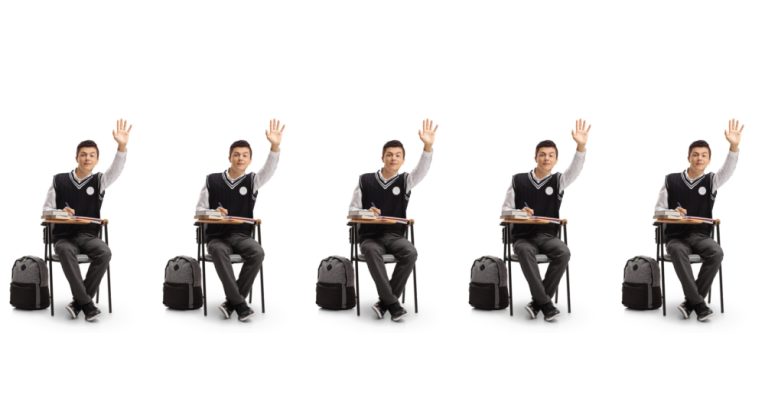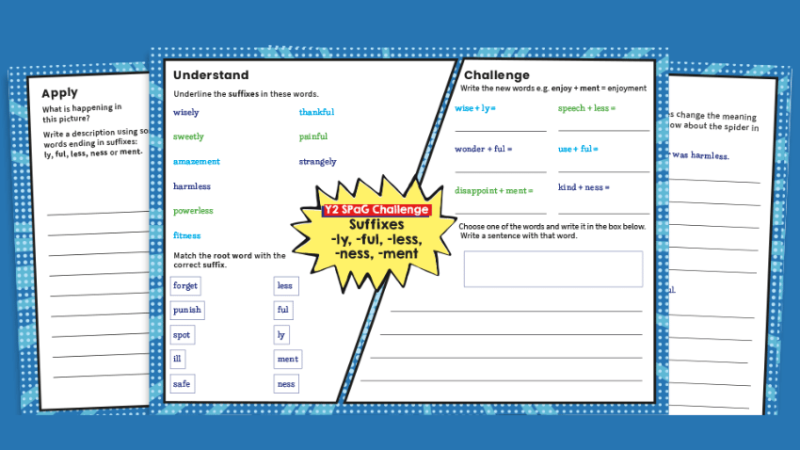Peer Observations Make us all Better Teachers

It's easy to lose sight of good teaching practices in the maelstrom of the school year, but making time to watch your peers can help all of us be the best educators we can be, says Dan Draper…

- by Dan Draper

“This starter was different than yesterday because the perimeter question yesterday was just in centimetres but this one had different units in it,” one of my Year 10s began to explain in my most recent observation.
“And you know what sir? I felt very challenged by that today.” My observer shot me a look of confusion as I moved on. It sounded scripted, like a response from a Stepford pupil, who we’d later realise had been a robot all along.
Observations, visitors and learning walks can bring out this behaviour in kids where they stop answering questions and start acting like they think they’re supposed to.
Soundbites they’ve heard other people use come pattering out of them and they daren’t touch a mini whiteboard or ask a question in case it makes their teacher look bad.
It’s an impression of what they think a good student is. It’s equally sweet and frustrating.
This girl’s automated response about the starter jarred even more given I was being observed by two other maths teachers in our department. We’d been set up as a trio, each being seen by the others, before discussing the lessons.
As purely developmental observations, we decided to be seen with our most challenging classes to get extra eyes in to unpick what can make these lessons better.
I don’t see much teaching. I’m a main-scale, fully-timetabled teacher with intervention groups, a tutor set and corridor duties during non-contact periods. We’ll often pop in and out of each other’s rooms, but spending a whole lesson sitting in someone else’s lesson is a luxury.
Having time built in to the school calendar is important bread and butter CPD, and far more valuable than a whizzy course or guest speaker.
Some CPD and performance management structures strive to make sure everyone is observed, but our school also made sure every teacher observes.
I saw other members of my department teach an ordinary lesson, giving me a reference point to reflect on my own practice. I saw how others were setting up their routines and let me refine and focus in on areas we want consistency across both school and department.
Pedagogically, I saw things I used to do and forgot about. The minutiae of teaching; the specific words teachers use to introduce a concept, or little bits of resourcing or practical technology uses.
(The best technology CPD I’ve ever had was looking over the shoulder of someone that can actually use spreadsheets properly and asking questions.)
Each of us observing took things from the other lessons we observed, simple little ideas about a way one teacher used praise, or how one was using a tick list to signpost lessons, or explicitly stating success criteria; all things we know are good practice, but things that get dropped during the term-time maelstrom.
The first time I was involved in peer observations was years ago as an NQT, across different departments. I observed a sociology lesson and a languages lesson, both subjects where my subject knowledge was non-existent.
In my own subject, I find it difficult to not focus on the maths and how it’s being presented, structured or practised. Being removed from that helps me see teaching more generally.
Similarly, observing outside of my subject meant I was able to glean more of an insight into pupils’ experience too.
Low-stakes peer observations where all staff get to see and reflect on what they’ve seen creates an energising and trusting collegiate atmosphere amongst staff.
And while classroom teachers can feel quite isolated, working away as if in a silo, it provides a vital outlet to discuss the nitty-gritty of everyday teaching and learning away from pro-formas and dogmatic criteria.
Dan Draper is a maths teacher from the East Midlands. You can find him at mrdrapermaths.wordpress.com and follow him on Twitter at @MrDraperMaths.









